
Cuisine
Namibian cuisine
Namibian cuisine is heavily influenced by the country's geography and climate. The cuisine is characterized by its use of game meats, seafood, and indigenous plants and fruits. Namibian cuisine is also influenced by the country's colonial history, with German and South African influences present in many dishes. The cuisine is known for its bold flavors and unique ingredients.
Typical ingredients
Game meats (kudu, ostrich, springbok), Seafood, Indigenous plants and fruits (marula fruit, mopane worms), Maize, Beans, Sweet potatoes
Presentation and garnishing
Presentation and garnishing are not a major focus in Namibian cuisine. Dishes are often served family-style, with large platters of food placed in the center of the table for everyone to share.
Namibia is home to a number of unique ingredients, such as the marula fruit, which is used to make a popular liqueur. The country is also known for its production of high-quality beef and game meats.
More cuisines from this region...
South African cuisine, Malagasy cuisine, Mauritian cuisine, Malawian cuisine, Mozambican cuisine, Seychellois cuisine, Zambian cuisine, Zimbabwean cuisine, Botswana cuisine, Cuisine of Eswatini
History
Namibia's cuisine has been shaped by its geography and climate. The country's arid climate has made it difficult to grow crops, leading to a reliance on game meats and indigenous plants and fruits. The cuisine has also been influenced by the country's colonial history, with German and South African influences present in many dishes. Namibian cuisine has evolved over time, with new ingredients and cooking techniques being introduced by immigrants and travelers.
Cultural significance
Food is an important part of Namibian culture, with many traditional dishes being served at special occasions such as weddings and funerals. The cuisine is also influenced by the country's colonial history, with German and South African influences present in many dishes.
Health benefits and considerations
Namibian cuisine is generally considered to be healthy, with a focus on fresh, whole ingredients. However, some dishes may be high in fat or salt. Game meats are a good source of protein, while indigenous plants and fruits provide a variety of vitamins and minerals.
Namibian cuisine dishes

Oshifima
Maize porridge
Oshifima is a traditional dish from Namibia that is made from mahangu flour. It is a staple food in many parts of the country, and is often served with meat or vegetables.

Omutako
Namibian egg and tomato dish
Omutako is a traditional dish from Namibia that is made with beef and onions. It is a hearty and flavorful meal that is perfect for cold winter nights.

Kalembula
Fried Okra
Kalembula is a traditional Zambian dish made with pumpkin leaves and peanuts. It is a popular vegetarian dish in Southern Africa.
Namibian cuisine recipes Browse all »
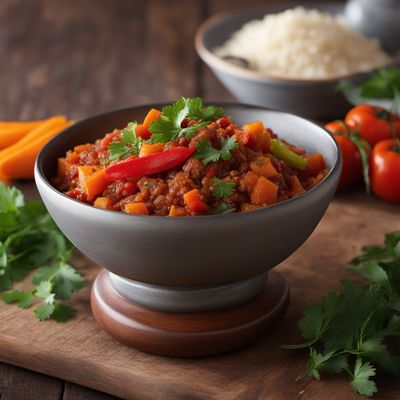
Namibian-style Revuelto de Gramajo
Savory Namibian Potato and Meat Scramble

Namibian Grilled Meat Skewers
Savory Namibian Braai Delight
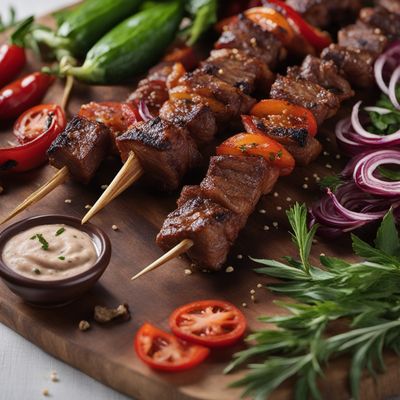
Namibian-style Grilled Meat Skewers
Savory Delights from the Namibian Grill

Namibian-style Red Peas Soup
Savory Namibian Red Peas Delight

Namibian Cheese Tortilla
Savory Namibian Cheese Delight

Namibian-style Cheese Coney Hot Dog
Savory Namibian Hot Dog Delight
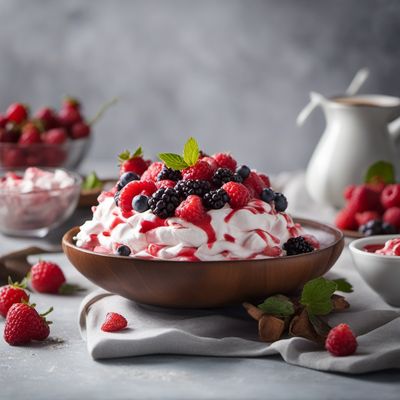
Namibian Mess
Savannah Delight: Namibian Mess with a Twist
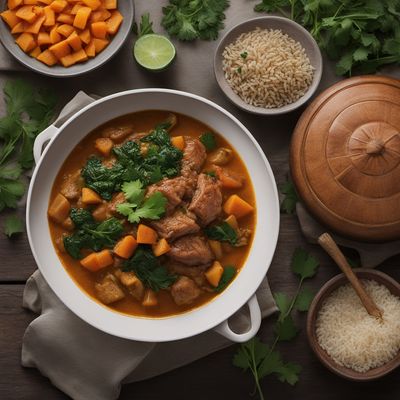
Namibian-style Pork and Rice Stew
Savory Namibian Pork Potjie: A Flavorful Fusion of Cultures

Namibian-style Pork Skewers
Savory Namibian Pork Skewers with Spicy Peanut Sauce

Namibian-inspired Opera Cake
Savannah Symphony: Namibian-inspired Opera Cake

Namibian-style Beef Dopiaza
Savory Spiced Beef with Caramelized Onions Namibian-style
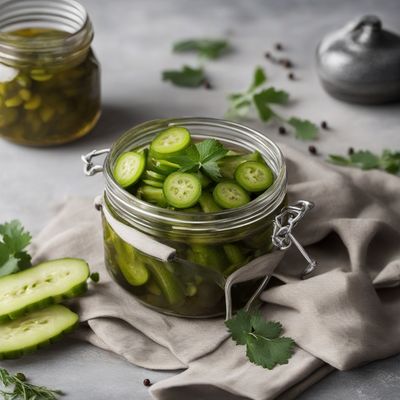
Namibian-style Pickled Cucumbers
Savory Tangy Delight: Namibian-style Pickled Cucumbers